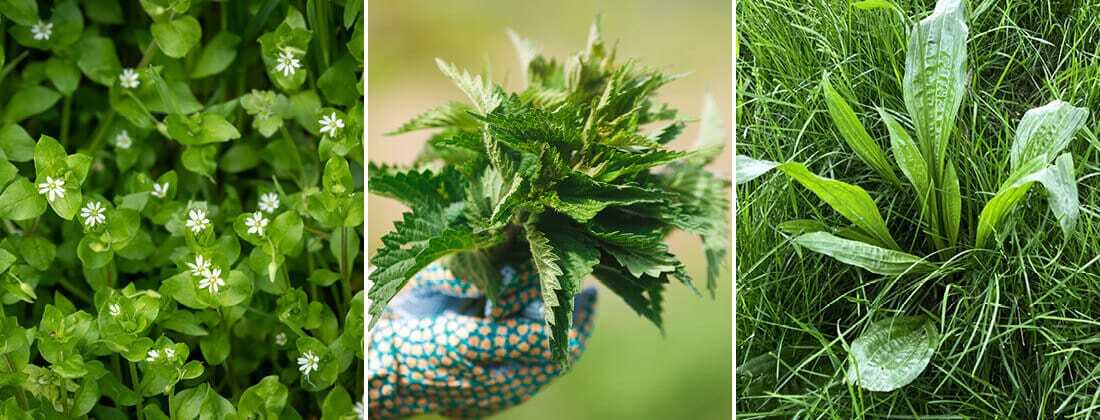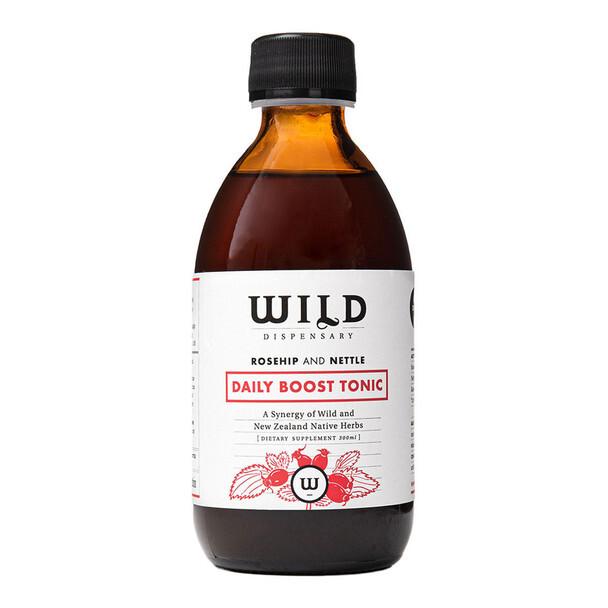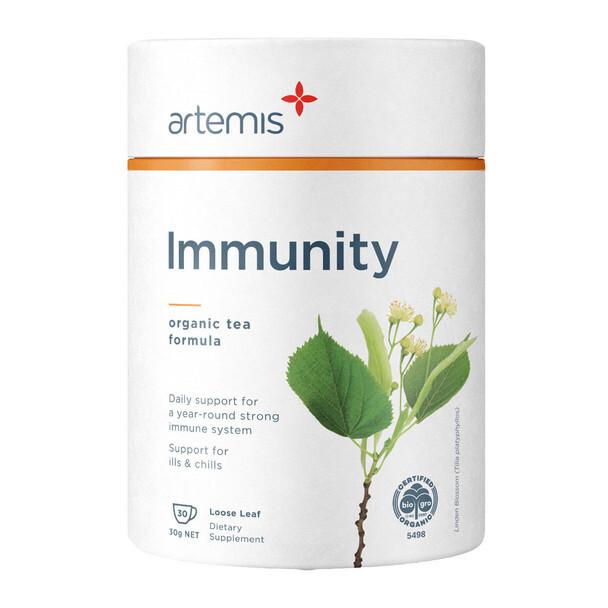
Spring is finally here - and so are some of nature’s most powerful wellness plants. After what felt like a long, chilly winter, it’s such a joy to see some familiar herbs returning - nettle shoots unfurling, chickweed creeping through cool soil, and the glossy leaves of plantain catching the sun.
Many of these spring herbs are not only abundant but deeply nutritious, offering both food and gentle wellness support. Here's three of my favourite spring plants you might find in your own backyard - along with simple, practical ways to use them for everyday vitality.
For post-winter wellness: Nettles
Nettles (Urtica dioica or Urtica urens) - yes, the kind that sting - are one of spring’s most nourishing wild herbs for wellness. Often called a spring detox herb, nettles are packed with natural iron, vitamin C, and minerals that help support energy after cooler months. They’re a gentle way to support vitality, iron levels, and overall wellbeing - nature’s very own everyday tonic.
How to harvest and use:
Wearing gloves, snip the top third to half of a healthy-looking plant* and dry it flat out of direct sunlight. Once the sting is gone, steep the leaves in hot water for a deeply mineral-rich nettle tea - let it sit anywhere from 5 minutes to overnight (your brew will be almost black by morning, but incredibly rich in minerals!). You can also add the leaves to soups or stews for a natural iron boost.
Skip the foraging with: Wild Dispensary Daily Boost Tonic
This NZ-made herbal tonic features locally grown nettles, along with other wellness botanicals, to help support nutrient levels and daily energy - perfect if you’d rather skip the foraging and enjoy the benefits of nettles for energy in a ready-made blend.
|
For seasonal immune support: Plantain
Plantain (Plantago officinalis or Plantago lanceolata) is one of nature’s most underrated herbs for soothing and repair. You can spot it by the distinctive parallel veins running through its broad or narrow leaves. This humble, low-growing plant is rich in mucilage - a cooling, gel-like compound that helps soothe a scratchy throat, calm the digestive system, and ease itchy insect bites.
How to harvest and use:
Plantain is abundant and resilient - take as many leaves as you need but use what you harvest. It can be found almost all year round in Aotearoa. Use the leaves fresh or dried to make a soothing plantain tea, or, in a pinch, simply crush a leaf and apply it directly to a bug bite or minor skin irritation for fast relief.
Skip the foraging with: artemis Immunity Tea
Locally made in Aotearoa, this comforting tea blends plantain with time-tested herbs to soothe from the inside out - supporting clear breathing, a calm throat, and everyday immune health, no foraging necessary.
|
For skin & seasonal nourishment: Chickweed
Chickweed (Stellaria media) is a tender, nutrient-rich green that’s long been valued in traditional herbal practice for its cooling and soothing properties. It creeps along the ground with tiny, star-shaped white flowers - the feature that inspired its Latin name. There are a couple of lookalikes, but they have coloured flowers.* Often found in shady or cooler spots in spring, this humble plant has been traditionally used to support skin health and provide gentle nourishment from within.
How to harvest and use:
Chickweed is easy to pull and grows abundantly once the weather warms. It’s best used fresh, as it quickly withers when dried. Add it to salads, teas, or smoothies, or enjoy it as a mild spinach substitute.
Try it in this Superfood Chickweed Smoothie:
- ½ cup fresh or frozen mango
- 1 good handful fresh chickweed (washed)
- 1 slice lemon – rind & all
- 1 scoop Vital Protein Vanilla or 2 tbsp hemp seeds
- Optional – ½ tsp Matakana Superfoods Matcha for a gentle green tea boost
- Your choice of milk, water, or coconut water
Blend together and enjoy!
How to identify wild herbs (or those in your backyard)
Before you start foraging, it’s important to make sure you’ve correctly identified what you’re picking. Proper plant identification ensures you’re gathering something that’s both safe and supportive for your wellbeing. Here are a few simple tools and tips to help get you going.
1. A good field guide or foraging book
Look for one written by a local expert - New Zealand–based guides will give you the best match for what actually grows here. Libraries are a great place to start so you can try before you buy.
2. A plant identification app
These can be useful, but they’re not always accurate - especially for native or introduced species in Aotearoa. If you use one, always double-check the result with a reliable book or local source before consuming anything.
3. Ask a local expert
Connecting with people who know their plants is one of the best ways to learn. Reach out to a local herbalist, gardener, or botanical garden. Workshops and herb walks are also great ways to build confidence and community while learning to identify plants safely.
4. Cross-reference, always
Never rely on a single source. Check two or three different references - and if you’re unsure, don’t harvest it.
*Always be 100 percent sure you have the correct plant before you pick anything and avoid gathering from roadsides or areas exposed to runoff or waste.
Holistic tips for a healthy home this season
Spring is the perfect time to freshen up your home and energy. As the days get lighter, many of us naturally feel drawn to open the windows and clear the clutter - both in our spaces and our routines.
When it comes to cleaning, I like to keep things simple and natural. One of my go-to DIY cleaners is a mix of water, white vinegar, and a few drops of essential oil such as Absolute Essential's Eucalyptus Lemon. It’s an easy, non-toxic way to clean surfaces and leaves the house smelling fresh and bright.
| Shop well → | Explore Emily’s other articles → |
Emily Boese (BNatMed) is a Naturopath & Medical Herbalist based in Tāmaki Makaurau Auckland. Through her business Pōhutukawa Health, Emily works with one-on-one clients to support their health naturally, and runs online and in person workshops, where she helps people learn to confidently identify, grow, harvest, make and use medicinal plants.



